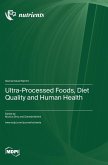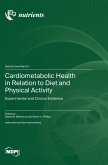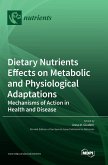In recent decades, solid scientific evidence has demonstrated the role of dietary bioactive compounds in the maintenance of health. However, in the last few decades, interest in the nutritional field has expanded further, with researchers seeking novel compounds with the capacity to reduce the risk of non-communicable diseases (such as cardiovascular disease, cancer, chronic respiratory disease, and diabetes). Additionally, efforts have been made to potentially alleviate dietary deficiencies (such as a lack of essential minerals). In general, bioactive compounds are non-nutritional components derived from plant sources. In recent years, their consumption has been related to the prevention of multiple pathologies through several mechanisms that include reducing oxidative stress and the inhibition, enzymatic activation, or modulation in the expression of certain genes. Improvements in analytical techniques have allowed the scientific community to identify these compounds in foods in order to elucidate the mechanisms that relate them to health. In this context, this Special Issue of Nutrients, entitled "Emerging Dietary Bioactives in Health and Disease", welcomed original studies as well as review articles examining the impact of bioactive compounds on health and disease. Epidemiological and interventional studies, systematic reviews, and meta-analyses are welcomed in this effort.








